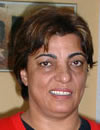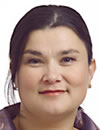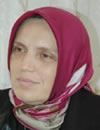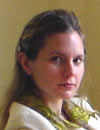New ESI report: Feminism, Islam and the Future of Turkish Democracy
Dear friends of ESI,
In 2005 ESI published its first analytical report on Turkey: Islamic Calvinists – Change and Conservatism in Central Anatolia.
We hoped at the time that it would contribute to a better understanding of Turkey in Europe. However, the response to the report surprised us. Islamic Calvinists was discussed in media from New York to Shanghai, London, Paris, Barcelona, Munich, Brussels, Prague. It also triggered an intense debate in Turkey about the relationship between modernisation and religion. Foreign Minister Abdullah Gül declared himself to be an "Islamic Calvinist".
Obviously there was a large interest in empirically based analyses of today's changing Turkey.
Turkey's feminine revolution
The publication of our most recent report – Sex and Power in Turkey – Feminism, Islam and the Maturing of Turkish Democracy – also takes place at a time of vigorous debate about Islam, secularism and democracy. However, our research on this topic started a long time ago.
Over the past 18 months, a team of ESI analysts has been researching the changing reality of women in Turkey. This took us from women's shelters in wealthy areas of Istanbul, through the growing urban centres in Turkey's southeast, to small towns near the Iranian border. We sought to answer two questions: what are the root causes of Turkey's vast gender gap? And what is being done by Turkish political actors to try to close it?
Today, Turkey lags behind every other European country in almost every measure of gender equality. It has the lowest number of women in parliament, the lowest share of women in the workforce and the highest rates of female illiteracy. The perception that, in this highly sensitive area, Turkey is out of step with other European societies has become central to European debates on Turkey's EU accession.
Our findings make the direction of recent changes in Turkey obvious:
"In the history of the Turkish Republic, there have been two periods when major improvements were made to the status of women. One was the 1920s, the early years of the Republic, when Mustafa Kemal Ataturk outlawed polygamy and abolished Islamic courts in favour of secular institutions. The second major reform era has been the period since 2001 which saw the most radical changes to the legal status of Turkish women in 80 years. As a result, for the first time in its history, Turkey has the legal framework of a post-patriarchal society."
On the basis of our research we conclude:
"There are some who fear that Turkey may be turning its back on its secular traditions. Some of the loudest voices come from Kemalist women, who insist that the rise of 'political Islam' represents an acute threat to the rights and freedoms of Turkish women. There have even been calls for restrictions to Turkish democracy, to protect women's rights. Yet such an 'authoritarian feminism' is out of touch with the reality of contemporary Turkey and the achievements of recent years."
We also recommend an extremely interesting recent publication by Richard Rose and Yusuf Ozcan on the Quality of Life in Turkey (2007).
In coming weeks we will add more material to this section of our website to support readers and researchers who want to explore this vital issue further.
 |
 |
 |
 |
 |
| Akkoc | Bekkemellem | Bozkurt | Tuksal | Nigar Goksel |
Imagine a new world
ESI Senior Analyst and editor of Turkish Policy Quarterly Nigar Goksel has put together a special issue of TPQ dedicated to the topic of women in Turkey.
Emine Bozkurt, Member of the European Parliament, writes about "Women's human rights" on Turkey's way to Europe.
"For the countries that want to be accepted as member of the EU, like Turkey, compliance with the gender equality principle is a pre-condition of membership. In this respect, gender equality and women's rights is one of the major areas of Turkey's accession process to the EU."
Nebahat Akkoç, founder of KAMER (Women's Center) in South East Anatolia, is one of the outstanding advocates of women's rights in Turkey today. In TPQ she imagines "a new world" without violence against women.
"In recent years, violence against women, and especially physical violence and violence that results in murder, has been brought to the agenda. The efforts of women's organizations and Turkey's EU candidacy process have been effective in this sense."
Hidayet Şefkatli Tuksal, head of the NGO Capital City Women's Platform, challenges the "unethical disqualification of women wearing the headscarf in Turkey". TPQ features an interview with Karita Bekkemellem, Minister of Children and Equality in Norway, about "gender equality in the workforce". And EU Commissioner and former Czech Prime Minister Vladimír Špidla writes about "Empowering women in Turkey" as a priority in the EU pre-accession process. He also notes:
"The role of women's associations has been recognized by the Turkish Government. Together with social services and the Directorate General for the Status of Woman, they need to become fully-fledged partners in implementing the relevant legislation and initiatives."
Additional TPQ articles on this issue will be put online within the next week.
We hope our new report and these articles interest you and look forward to your feedback.
Best regards,

Gerald Knaus
